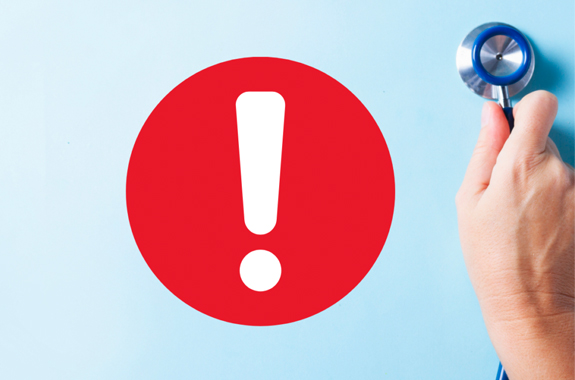This Health Box, along with the Medical Plan Box, will be the first ones available to Your Loved Ones. If you’ve triggered Emergency Mode, here’s what to know…
This Box contains fundamental healthcare information including provider(s), records, prescriptions, etc. Its primary usefulness may be to assist your Loved One in an emergency. Whereas, if your Loved One has passed away, there may be different value in these references.
Like all other Boxes, we suggest that you review each Box and the Items within them systematically and in detail. As you review everything, you’ll be able to prioritize based on your circumstances.
If your loved one is incapacitated and you need to manage their medical insurance on their behalf, here’s what you should do:
1. Obtain Legal Authority
To manage their medical insurance effectively, you may need legal authority, typically in the form of a healthcare power of attorney or durable power of attorney. These documents allow you to make medical and financial decisions for your loved one. If you don’t already have this, consult with an attorney to set it up.
2. Locate Insurance Documents
Gather all relevant medical insurance information, including:
- Health insurance cards (primary and any secondary policies)
- Policy numbers
- Contact details for the insurance company
- Copies of their insurance policy or online login credentials to access the policy.
You may also need details on Medicare, Medicaid, or supplemental health insurance if applicable.
3. Notify the Insurance Provider
Contact the insurance company to inform them of your loved one’s condition. Provide them with your legal authority (such as a healthcare power of attorney) to manage your loved one’s account. You may need to submit documentation proving your authority.
4. Review Coverage and Benefits
Go over your loved one’s health insurance policy to understand what’s covered, including hospitalization, rehabilitation, in-home care, and medications. If your loved one needs long-term or specialized care, check whether their insurance covers it and what the process is for obtaining pre-approval.
5. Coordinate with Medical Providers
Work with doctors and medical facilities to ensure that all necessary treatments are covered under the insurance policy. Many healthcare providers can help with billing and determining what procedures require pre-approval.
6. File and Track Claims
If your loved one has already received care, you’ll need to file insurance claims to ensure that bills are paid. Keep track of:
- Bills received
- Claims filed with the insurance company
- Payments made by the insurance company
- Any out-of-pocket expenses.
You may need to appeal claims that are denied or resolve disputes with the insurance provider.
7. Understand Policy Limitations and Copayments
Review the policy for copayments, deductibles, and coverage limits. Knowing what’s covered and what isn’t will help you budget for any out-of-pocket costs and plan for future care needs.
8. Seek Professional Help if Needed
If managing the insurance seems overwhelming, consider seeking help from a patient advocate or insurance expert. They can assist with understanding benefits, filing claims, and resolving disputes with the insurance company.
By taking these steps, you can ensure that your loved one receives the necessary medical care while minimizing financial complications.
If your loved one has passed away, you may need to manage their medical insurance information to resolve outstanding medical bills and handle any necessary claims or cancellations. Here’s what to do:
1. Notify the Insurance Company
Contact your loved one’s health insurance provider to inform them of the death. You may need to provide:
- A copy of the death certificate
- Proof of your legal authority, such as being the executor of the estate or having power of attorney before the death.
Ask the insurance company for guidance on closing the account or filing any final claims.
2. Handle Outstanding Medical Bills and Claims
- Check for unpaid medical bills: Review any outstanding bills from hospitals, doctors, or healthcare providers. Submit claims to the insurance company for any services that were covered prior to your loved one’s passing.
- File any final claims: If your loved one had received care before their death, you may need to file a claim to ensure those bills are covered. This may also include filing claims with Medicare or Medicaid if applicable.
- Appeal any denied claims: If a claim is denied, you can appeal the decision. Make sure to provide any required documentation from the healthcare providers or the death certificate to support the claim.
3. Cancel Health Insurance Policies
Once all medical claims have been processed, contact the insurance company to cancel the policy. This applies to:
- Private health insurance
- Employer-sponsored health insurance (you may also need to contact the employer’s HR department)
- Medicare or Medicaid (notify the relevant agencies)
Be sure to follow the insurer’s process for closing accounts and confirm that no further premiums will be charged.
4. Address Other Insurance Policies
If your loved one had life insurance or other policies like long-term care insurance, be sure to:
- Contact the relevant insurance companies to file claims.
- Provide a death certificate and necessary paperwork to beneficiaries.
5. Review and Update Your Own Insurance Coverage
If your loved one was a dependent on your policy, you’ll need to update your insurance information. Similarly, if you were on their policy, you may need to secure new health insurance for yourself.
6. Seek Professional Assistance If Necessary
If there are complex issues surrounding your loved one’s estate or insurance claims, consider consulting a probate attorney or a financial advisor. They can help you navigate the process of settling any outstanding debts and managing the estate’s finances.
By taking these steps, you can ensure that your loved one’s medical insurance is properly managed, their final medical expenses are addressed, and no unnecessary payments continue.

